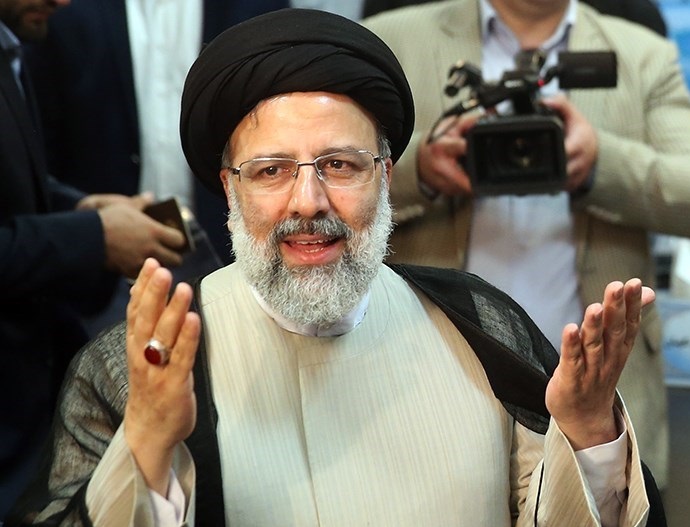Raisi’s death and Conservatives’ decline in Tehran
Former President Rouhani recently slammed the exclusion of pro-reform candidates from the country’s latest elections, raising questions about the system’s representativeness. In Tehran only 8 per cent of voters took part in the run-off election to parliament. After Raisi's death in a helicopter crash, the issue will likely resurface during the upcoming presidential election, which must take place within a delay of 50 days in accordance with the constitution.
Tehran (AsiaNews/Agencies) – The sudden death of Iranian President Ebrahim Raisi in the crash of his helicopter yesterday afternoon while he and Foreign Minister Hossein Amir-Abdollahian were returning from Azerbaijan is bound to reignite political divisions in the Islamic Republic.
The looming power struggle comes a few months after voters in Tehran expressed their displeasure with the line taken by the conservatives, using the only tool at their disposal: not voting.
Just a few days ago, in a rare open letter, former Iranian President Hassan Rouhani – in office from 2013 to 2021 – openly criticised the conservative-dominated Guardian Council for deeming him unfit to defend his seat in the Assembly of Experts elections, on 1 March.
Elected for an eight-year term, the 88-member council is likely to appoint the successor to the 85-year-old Supreme Leader, Ayatollah Ali Khamenei, who exercises overall authority in the Islamic Republic.
By defending the results of his administration, the moderate Rouhani indirectly attacked Raisi for scuttling negotiations to renew the 2015 nuclear agreement and, consequently, failing to solve the issue of Western sanctions.
With an implicit reference to former Speaker of Parliament Ali Larijani, his ally, who in 2021 was prevented from challenging Raisi in the presidential race, Rouhani said that disqualifying former heads of the three branches of power, especially those who secured the public’s vote of confidence in past elections, would “raise questions about the republicanism” of the Islamic Republic.
Indeed, when Raisi was elected three years ago, the turnout dropped to 48 per cent, by far the lowest ever in a presidential election.
On 10 May, in the run-off for the last seats to parliament in which practically only conservative candidates were allowed to run, only 8 per cent of eligible voters bothered to cast their ballot in the capital.
According to Rouhani, whose views found wide echo in some pro-reform newspapers, have been harshly criticised by circles close to the Revolutionary Guards (Pasdaran) who accuse the former president of being a member of the exiled Iranian opposition.
With Raisi's disappearance, the struggle for power in the country and the race to succeed Khamenei have a new lease on life.
First Vice President Mohammad Mokhber will serve as interim president while a fresh election is prepared within 50 days, a timeframe set out in Iran's constitution for replacing a president who dies in office.
In the coming weeks, the question of the veto on candidates will arise again.
Among pro-reform advocates, the most popular candidate, in addition to Larijani, is probably former Foreign Minister Mohammad Javad Zarif, who dropped out in 2021.
Among conservatives, potential candidates include Mokhber, the outgoing Speaker of Parliament Mohammad Baqer Qalibaf (who ran for president twice, defeated by Mahmoud Ahmadinejad in 2005 and Rouhani in 2013), and the current mayor of Tehran, Alireza Zakani.
24/05/2021 17:46
29/02/2024 15:58







.png)










